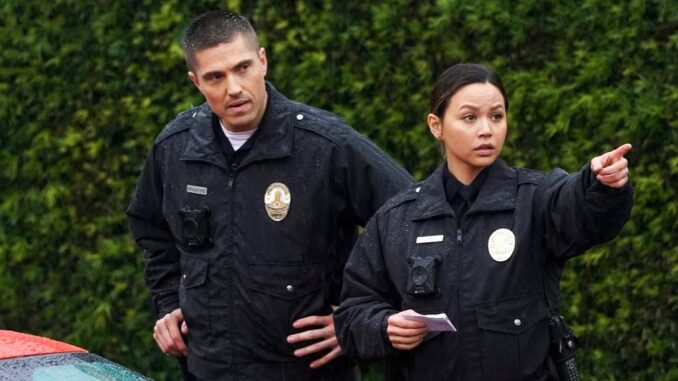
Seven Years Later: The Stain of the Metro Incident Still Defines "The Rookie"
Seven years. It’s a lifetime in the life of a cop show. Enough time for seasons to bloom and wither, for characters to evolve, for plotlines to twist and turn. Yet, for "The Rookie," the shadow of the Metro incident, the devastating explosion that ripped through their world and claimed the lives of Officer Doug Stanton and multiple innocent civilians, still lingers, a dark stain that refuses to fully wash away. It’s not just a plot point revisited, but a defining trauma that continues to shape the characters, the storylines, and the very ethos of the show.
The immediate impact of the Metro incident was, of course, cataclysmic. It exposed the vulnerabilities of the LAPD, highlighting the dangers of unchecked arrogance and the devastating consequences of prejudice. Stanton, initially presented as a charismatic and respected officer, was revealed to be a deeply flawed individual, fueled by racism and motivated by a warped sense of justice. His reckless actions, culminating in the planted bomb, shattered the illusion of security within the 15th Division and forced a reckoning with the insidious presence of bigotry within their ranks.
The ripples of this tragedy extended far beyond the immediate aftermath. John Nolan, the titular rookie, carries the weight of Stanton’s betrayal deeply. He witnessed Stanton’s descent firsthand, struggling to reconcile the image of the respected officer with the monster he became. This experience cemented Nolan’s unwavering commitment to ethical policing, driving him to constantly question his own actions and to hold his colleagues accountable. He learned that trust, even within the brotherhood of law enforcement, is fragile and must be earned and constantly re-evaluated.
Beyond Nolan, the Metro incident irrevocably altered the dynamic of the entire 15th Division. Characters like Sergeant Grey and Officer Lopez, already seasoned veterans, were forced to confront the systemic issues that allowed Stanton's prejudice to fester. They became more proactive in addressing issues of bias and discrimination, pushing for reforms and training initiatives aimed at fostering a more inclusive and equitable police force. The explosion served as a brutal reminder that complacency is not an option, and that vigilance against prejudice is a constant, ongoing struggle.
Furthermore, the incident forced the show to grapple with the complexities of grief and trauma. The loss of Doug Stanton, despite his villainous actions, was still a loss. It highlighted the human cost of extremism, even for those consumed by hate. More importantly, the tragedy became a catalyst for exploring the lingering psychological impact on the surviving officers. We see them grapple with PTSD, with survivor’s guilt, and with the ever-present fear that such a catastrophe could happen again. This nuanced portrayal of trauma adds a layer of realism and depth to the show, acknowledging the lasting scars that violence leaves behind.
Even seven years later, the echoes of the Metro incident resonate through the show's storylines. Characters still refer to it, recalling the lessons learned and the lives lost. New recruits are warned about the dangers of unchecked power and the importance of empathy. The show consciously incorporates storylines that address issues of racial bias, police brutality, and the need for accountability. In essence, the tragedy has become a touchstone, a moral compass guiding the show's narrative and ensuring that the consequences of Stanton's actions are never forgotten.
In conclusion, the Metro incident isn't just a past event in "The Rookie"; it's woven into the fabric of the show's identity. It's a reminder of the fragility of justice, the pervasive nature of prejudice, and the enduring power of trauma. It forced the characters to confront their own biases, to strive for a more equitable system, and to carry the weight of their past into a better future. Seven years later, the tragic episode continues to define "The Rookie," not as a tale of despair, but as a testament to the possibility of growth, resilience, and the enduring hope for a more just world, one call at a time.